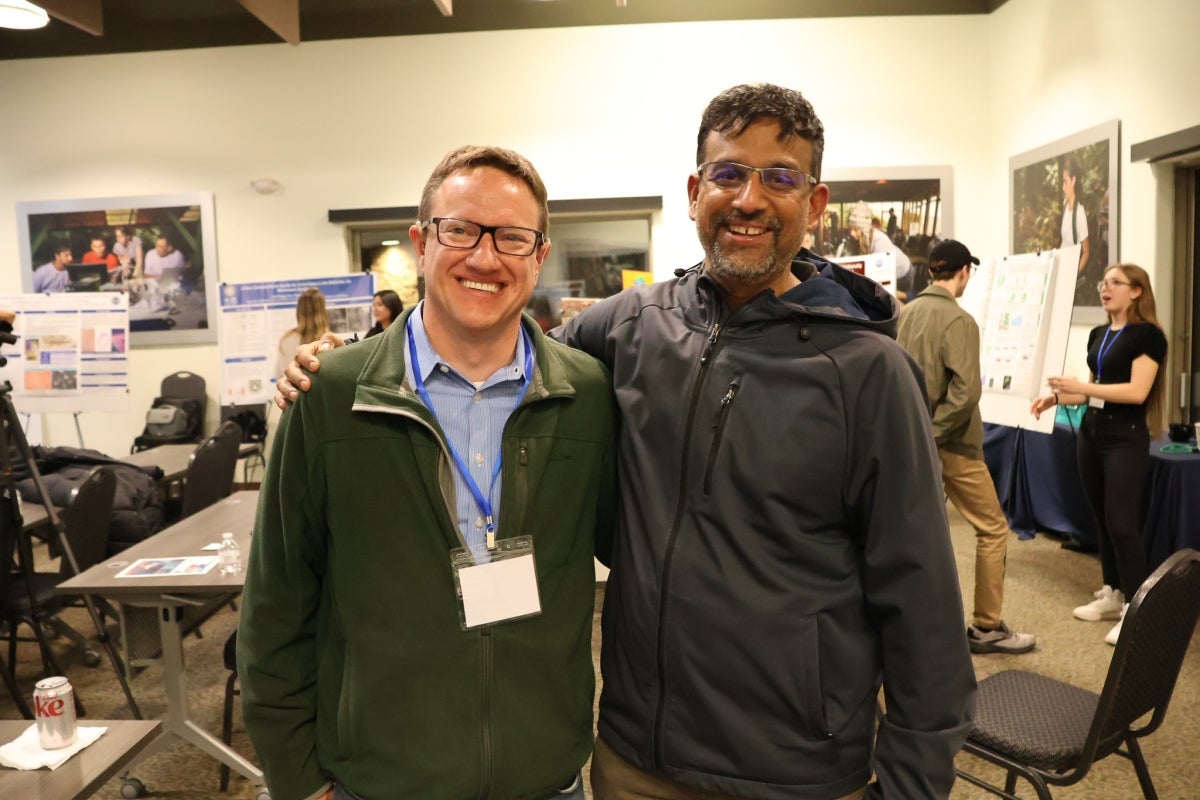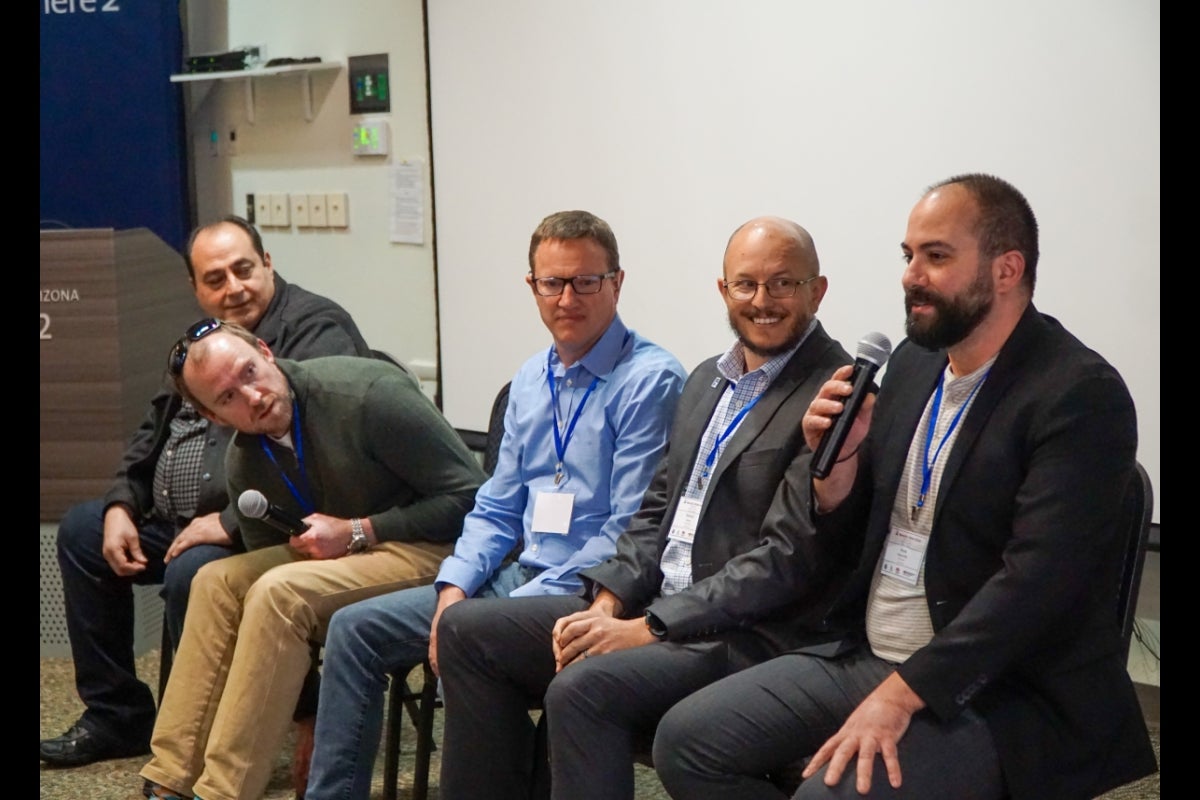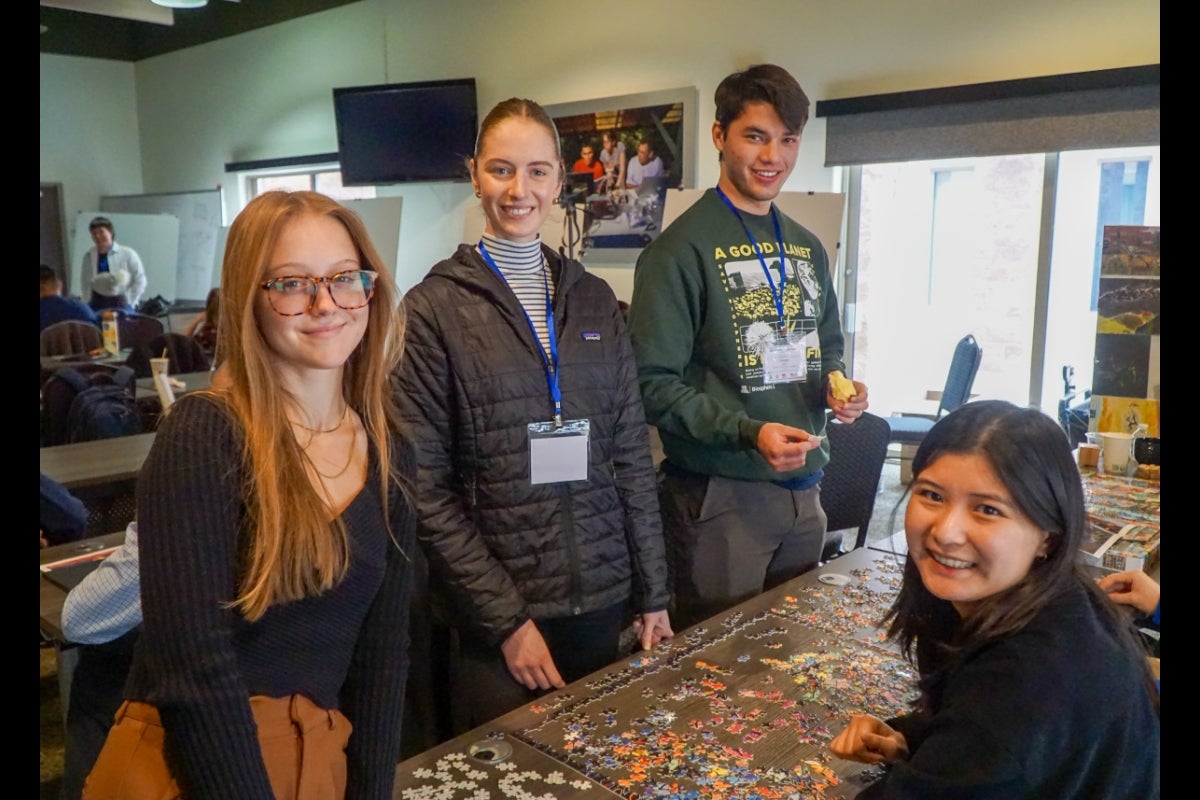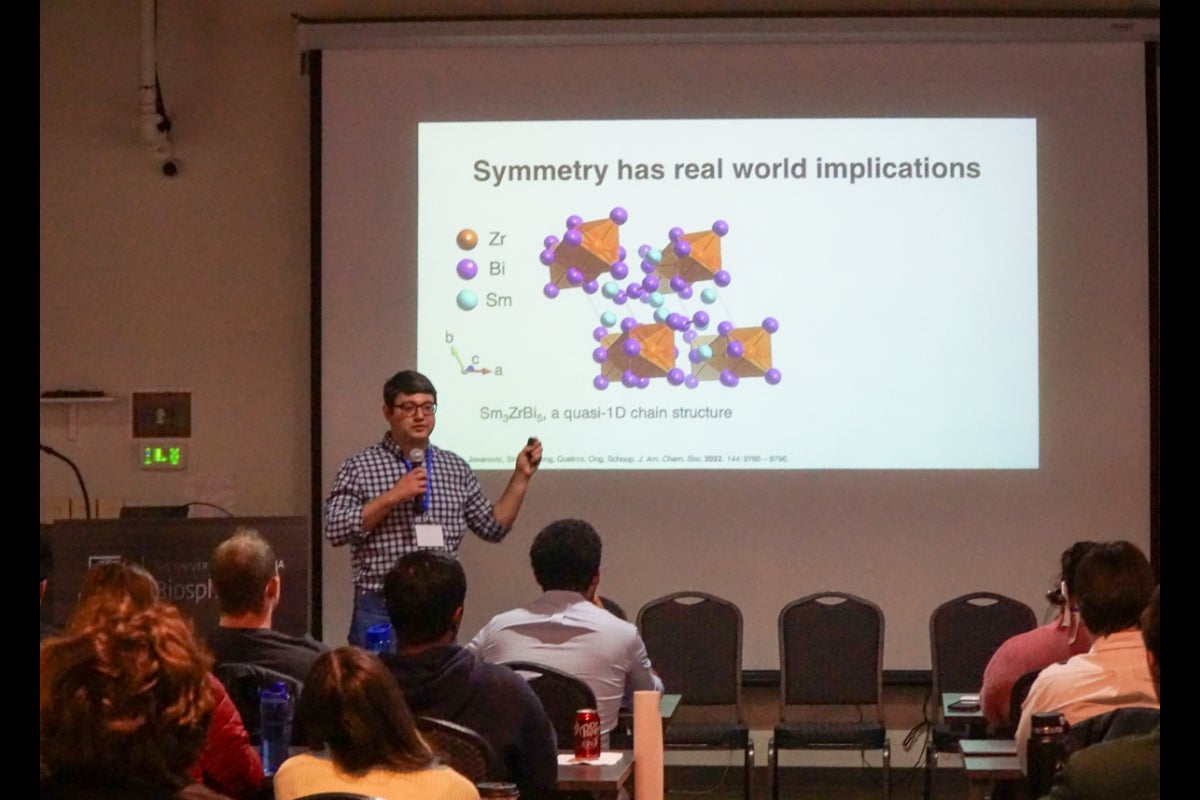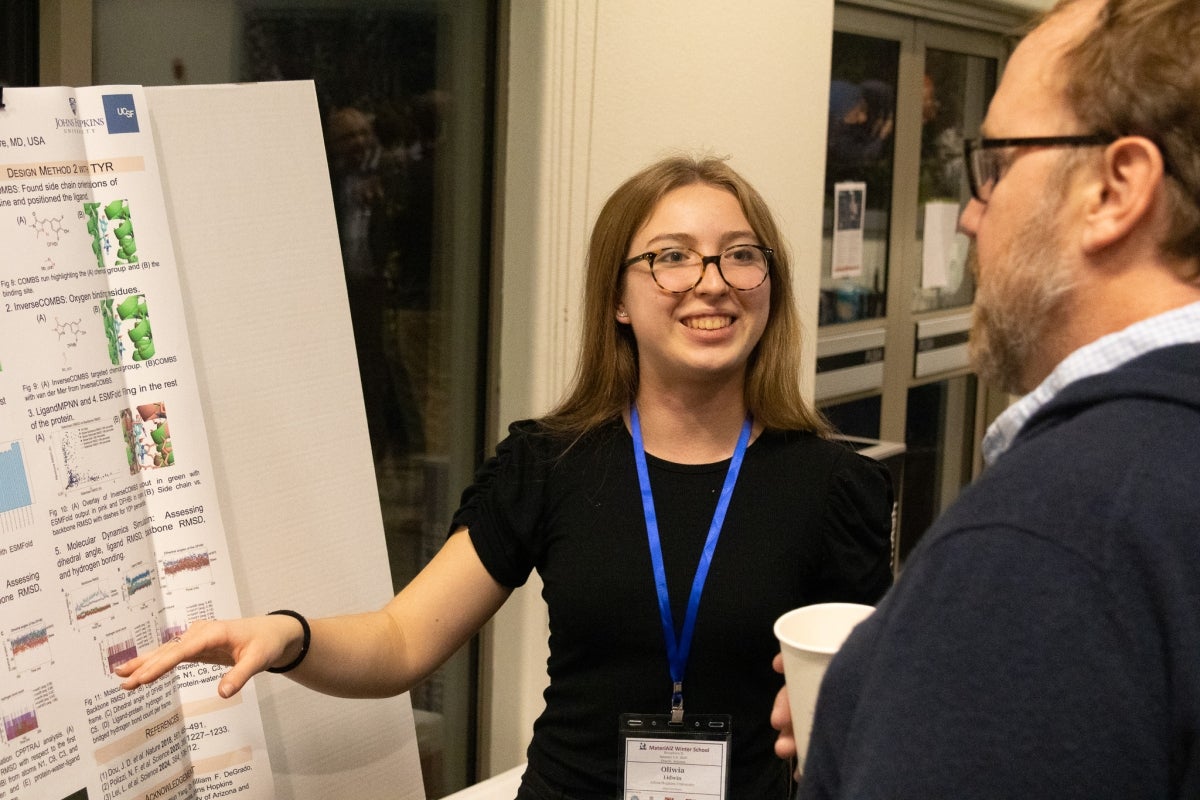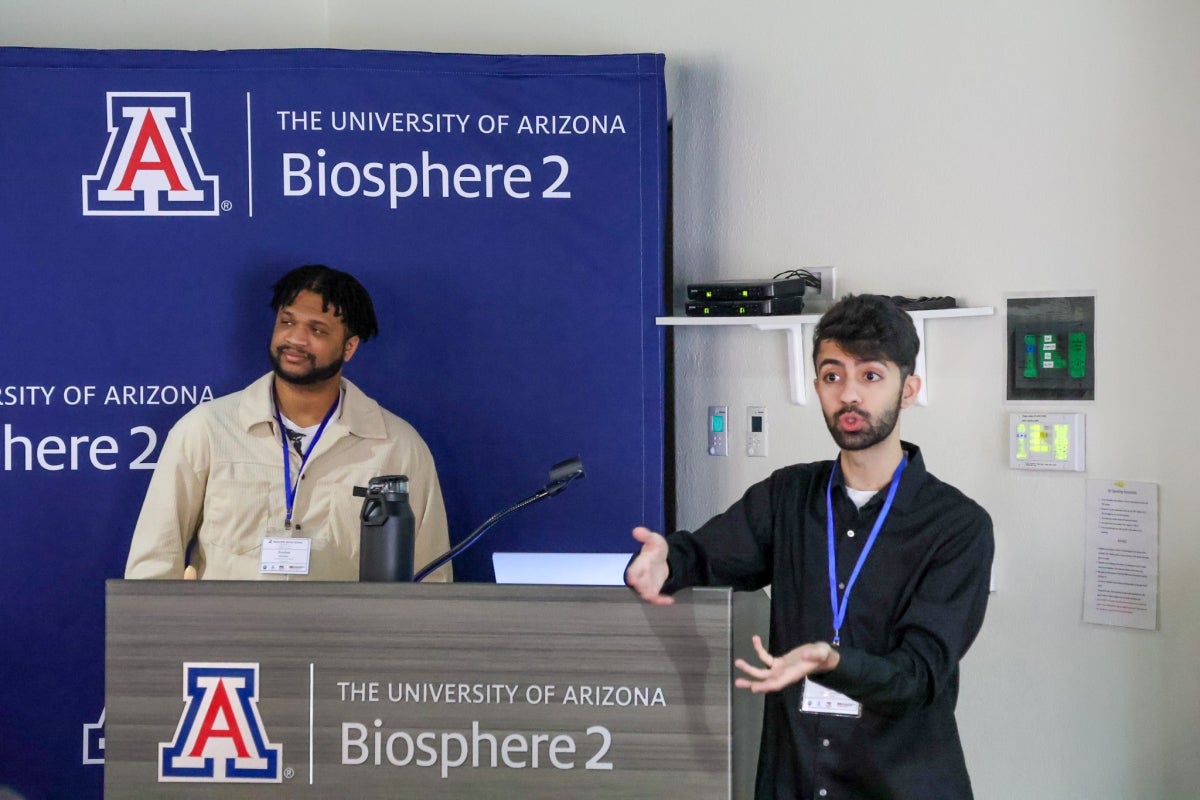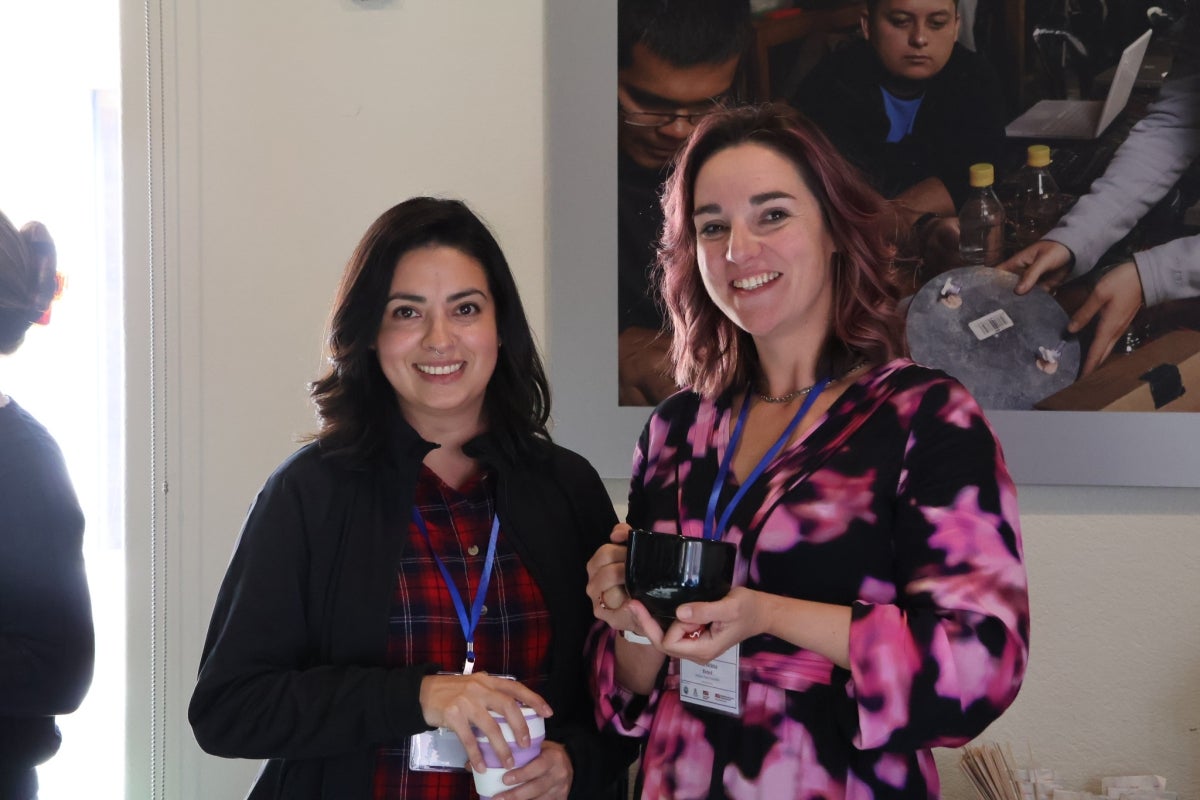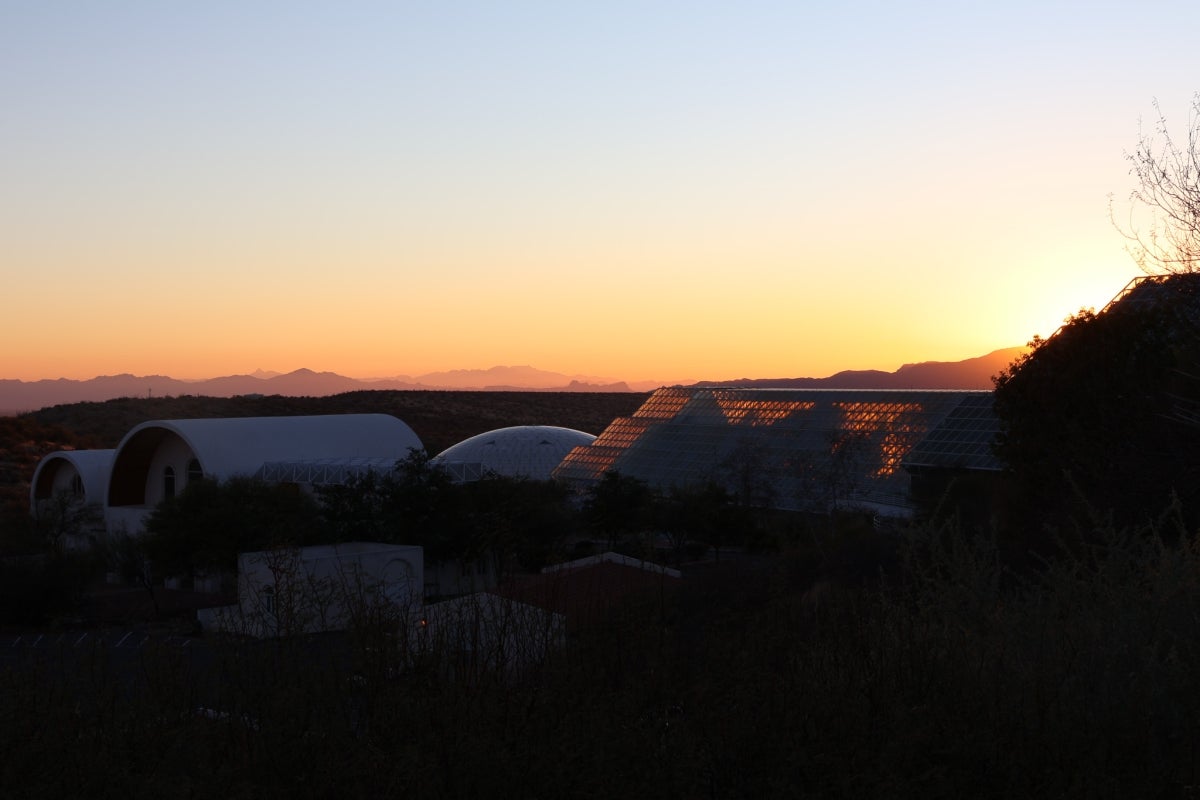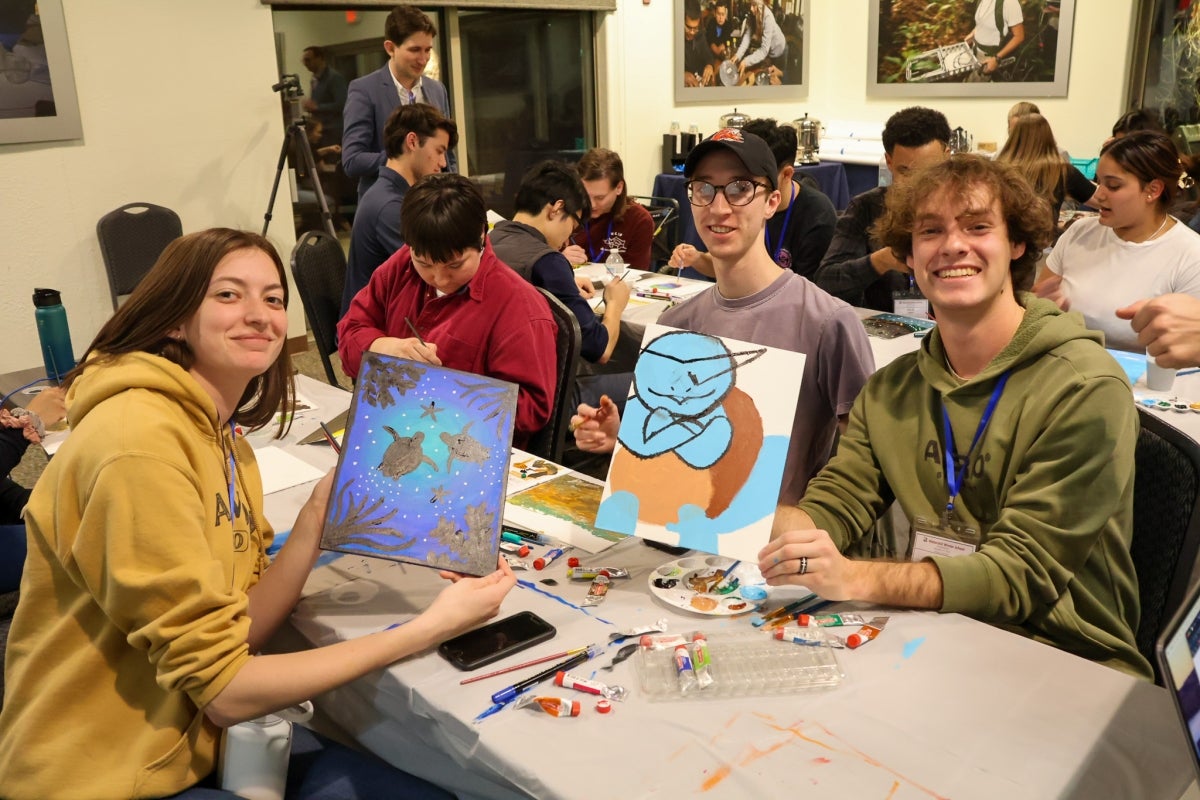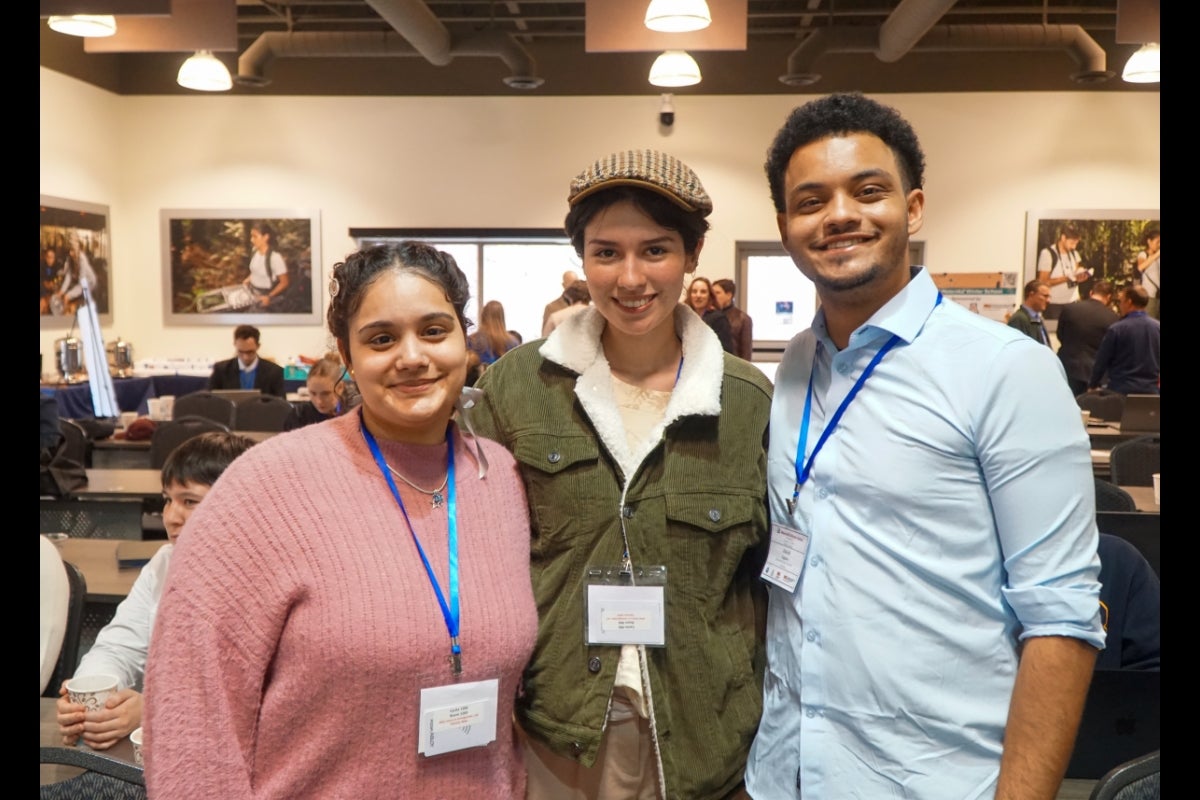Building a national materials science community
ASU and University of Arizona faculty team up to inspire the next generation of materials scientists.

As technology advances, companies in Arizona and around the world demand smarter materials to keep pushing the boundaries of what's possible—from faster electronics to safer, more efficient aircraft.
A team of faculty members across Arizona State University and University of Arizona, led by ASU School of Molecular Sciences Associate Professor Christina Birkel, is on a mission to ensure the next generation of material scientists is not only prepared but inspired.
In the first week of January, the team hosted its second annual MateriAlZ Winter School at Biosphere 2, nestled in the foothills of Arizona’s Santa Catalina Mountains.
More than two dozen undergraduate students from across the country participated in the week-long immersive program—free of charge—living, learning, and collaborating with peers while exploring the possibilities of materials science and building a sense of belonging and connection.
“We’re providing a window into different fields of materials science, ranging from tutorials on nanomaterials, energy materials, semiconductors, advanced manufacturing, and interweaving that with soft skill courses like public speaking and research article writing for the students,” said Birkel, the lead organizer of the event, whose own research bridges chemistry and materials science to design and study new solid-state materials.
“We’re building a community and providing a holistic view on materials science with career-focused education in this space.”
The winter school was made possible by generous funding from the National Science Foundation, ASU’s School of Molecular Sciences and ASU’s Southwest Prototyping Hub.
Learning about MateriAlZ opportunities
Set against Arizona’s strong materials research and semiconductor industry backdrop, the Winter School showcased the state's role in the field while inspiring students from across the country.
"The MateriAlZ Winter School is not just an educational opportunity,” said Bruno Azeredo, associate professor in ASU’s School of Manufacturing Systems and Networks and a winter school organizer. “It's about creating a collaborative space where students can see the diversity of research happening in material science, from energy to semiconductors.”
Throughout the week, students attended presentations and panel discussions on diverse topics, including an industry panel featuring representatives from Honeywell, Army Research Laboratory, Polycharge and more. They also attended a graduate student panel where grad students fielded questions about their journeys.
Mayra Rocha, a second-year engineering student at ASU, found the graduate school panel particularly impactful, saying it made the idea of grad school less intimidating.
“It’s easier for me now to see how to get there,” Rocha said during a break in activities. “Hearing people share their journeys, what inspires them, and the work they’re doing, things I never knew were possible, has been incredibly helpful. It’s been a great experience.”
The winter school also offered students the rare opportunity to connect with cross-discipline industry professionals, faculty, and researchers from national and private labs in a single setting.
For many, the experience was both reassuring and motivating.
“Studying materials is like understanding the universe's building blocks, combining physics, chemistry, and math to explore endless possibilities,” said Jakob Liggons, a chemistry student from Jacksonville State University, who traveled more than 1,600 miles to attend. “Being here confirms that this is what I truly want to do, and it’s inspiring to see how different paths converge in this supportive, judgment-free community.”
At its core, the MateriAlZ Winter School aimed to create an inclusive learning environment where everyone could thrive.
“My biggest worry was that with my personality, I wouldn’t fit in a field where people are so serious. But this has shown me that it’s not like that,” said Yahirnitza Torres Cruz, a chemistry student from Texas A&M. “My personality fits, and I’ve been able to connect with others on such a personal level. We talk about science and research, but then we also talk about things like anime or K-pop. It's funny how you can bond over something so random, and it just makes the whole experience more enjoyable.”
A lasting community
The vision of the organizing faculty is to grow a thriving MateriAlZ network over the coming years, creating a space where students, now and in the future, can find ongoing support and collaboration that extends beyond the winter school.
Participants are added to a private LinkedIn group, with nearly 75 members and growing, allowing them to connect with peers from past and future cohorts, share resources, and post opportunities like internships or job openings.
“This isn’t just about one week; it’s about creating value that continues for everyone involved,” said Birkel, event organizer and associate professor at ASU.
“If there’s one takeaway from this experience, it’s that you’re part of the materials community,” added Krishna Muralidharan, an organizer of the winter school and a professor in the department of materials science and engineering at the University of Arizona. “Whether your background is in chemistry, physics, electrical engineering, or materials science, this is your place – you belong here.”


